【新唐人2011年10月15日訊】廣東佛山市「住房和城鄉建設管理局」,原定從10月12號起,放寬佛山市居民購買樓房的限購條件,不過政策朝令夕改,住建局12小時後再次發佈通告「暫緩執行」這項放寬政策。專家分析指出,事件顯示,「房屋限購政策」已導致地方財政瀕臨危機,而中共中央仍拿不出政策,只能要求地方「限購」。
大陸中央去年下半年曾出臺「新國五條」,隨後更多城市出臺限購令。近一年來,各地房產成交量明顯減少,而價格卻沒有大幅度下降。
10月 11號上午,佛山市「住房和城鄉建設管理局」發出通知,從10月12號起放鬆對四類人的限購。不過,12小時後,住建局又發佈公告「暫緩執行」。公告暫緩的原因是「為了進一步徵詢社會各界意見,並綜合評估政策影響」。
香港《亞洲週刊》報導,「暫緩執行」動作源於李克強的電話通知。報導說,目前李克強主抓房地產市場調控與保障房建設,而且預計他將接任總理,因此房地產泡沫一直延續下去對他接任後的工作頗為不利。
不過,大陸十一期間房地產成交慘淡,加劇了地方政府的恐慌情緒。中國《證券報》表示,在房市調控政策不斷加碼背景下,今年以來建商資金回籠緩慢、市場預期悲觀,除了土地與房屋市場持續慘淡,房市深度調控最顯著特徵就是地方政府土地財政大幅下滑。
報導說,部分城市因為土地財政大幅滑落,轉向「溫柔」限購。對於這種「溫和」限購應及時制止,否則若任由風氣蔓延,將導致房地產宏觀調控政策效果打折扣。
深圳當代社會觀察研究所所長劉開明表示,限購政策解決不了問題。
深圳當代社會觀察研究所所長劉開明:「我們知道地方政府土地的收入與房地產,已經成為各地方的財政收入的重要來源。房地產價格下價,會影響地方的財政收入。限購政策並不是市場調節的辦法,它﹙中央﹚還是採用行政的手段來限制交易,我覺得這不是長久之計。」
廣東維權律師唐荊陵也指出,地方利益集團當然希望放寬限購條件,讓更多人來買房,但這個泡沫體系只是哪一天破滅的問題。
廣東維權律師唐荊陵:「這個﹙放寬限購令﹚我想不是最後一個,因為地方政府,財政危機很嚴重的話,他們會想辦法突圍嘛,因為雙方在經濟泡沫裡面,出現不同的對策嘛,地方政府的對策是保自己的命,中央政府是保它的命,各自想保自己的命,或者保自己的利益,就會出現政策打架的行為。」
據了解,佛山對土地財政依賴程度非常高,去年全市土地出讓收入380億元,而財政收入僅有306億元,土地出讓金與財政比例達到124%。今年前三季度佛山市出讓收入183億元,只有去年全年土地出讓收入的48%。
唐荊陵:「作為地方的利益集團和權力機構,他們都希望這個遊戲能繼續玩,但是從整個國家的宏觀經濟它已經到了玩不下這個遊戲的地步了,像中央當局,金融機構現在面臨破產的危機,當局必須得做出一個選擇,要嘛就是銀行進入破產,要嘛房地產機構賣不出去,他就必須採取這個硬性的限購政策。」
劉開明對《新唐人》表示,中國有半數人口買不起房,卻有許多政府官員參與炒房,地方政府一方面也在推高房地產價格。劉開明認為,從佛山市限購令朝令夕改可以看出,中央與地方還是走計劃經濟路線,不願意用市場的辦法來解決這個問題。
新唐人記者林莉、周平、周天採訪報導。
Government』s Game On Property Regulation
Anchor:
"Housing and Urban-Rural Development Authority"
in Foshan City, Guangdong Province, formerly announced,
that from October 12, residents in Foshan City would have
less restrictions on house purchasing.
However, the authorities changed the policy immediately.
After 12 hours they issued a notice “suspending” the policy.
Experts point out that this incident shows
how such a policy can lead to a local financial crisis,
as the Central Committee of the Chinese Communist Party
(CCP) and the local governments』 policies oppose each other.
The Central Committee released a policy of "five new items"
late last year, followed by “restriction policy” in more cities.
Over the past year the number of real estate trades decreased
significantly, while the price has not dropped significantly.
"Housing and Urban-Rural Development Administration"
in Foshan City issued a notice on the morning of October 11,
that since October 12 they would relax the restriction
on house purchasing for people of four categories.
However, after 12 hours, the authorities issued another notice
of "suspending to carry out" this policy.
The reason for the suspension was "to further consult with
the community and assess implications comprehensively."
Hong Kong's Asia Week reported that Li Keqiang's
phone call was the reason for this "suspension".
It reported that Li was currently in charge of real estate
market regulation and housing construction protection.
Furthermore, as he is expected to become the next premier,
a real estate bubble would not be a good prospect for him.
The transactions in real estate were very few during October 1
holiday, which exacerbated the panic in the local government.
China』s "Securities" stated that with the continuous changing
of the housing market regulatory policy,
the constructing business』 fund was gradually withdrawn
this year, resulting in pessimistic market expectations.
In addition to land and housing market continuous bleak,
the most notable feature of housing market's drop
and strong regulation is the land』s financing
large decline for the local governments.
It was reported that due to land finance』s falling,
some cities』 authorities have changed to "soft" restriction.
If this "soft" restriction is not promptly stopped it will
impact negatively the real estate macro control policies.
Liu Kaiming, head of the Contemporary Society Observation
Institute in Shenzhen, said the restriction policy is not wise.
Liu Kaiming: “I knew that land and property revenue
is the major income for the local governments.
The property prices will affect local revenue. Purchase
restricting』 policy is not the way to market regulation.
Central government restricting the trade
is not the final solution.”
Activist lawyer Tang Jingling points out,
that local interests』 groups hope to relax property restriction,
to allow more people to purchase a house,
however, this bubble system will burst out one day.
Tang Jingling: “The relaxation of property restriction』
regulation is not the best,
because if the local government has severe financial crisis,
they will try to break through it.
Both, local and central governments have different
strategies to deal with the bubble economy.
Both, local and central governments protect their interests,
and the strategies just end up opposing each other.”
According to source, Foshan』s revenue depends on properties.
Last year』s revenue from property was RMB38 billion,
with the public finance revenue being RMB30.6 billion,
or 24% lower than the property revenue.
At the end of September this year, the property revenue
only reached RMB18.3 billion, or 48% of that last year.
Tang Jingling: “Local interest groups and authorities want
to carry on this game, however, the country』s macro economy
can not afford to play it. The central government and financial
sectors are facing bankruptcy and authorities have to choose
between bankruptcy of the banks or popping up the real estate
bubble. That』s the reason for the housing restriction strategy.”
Liu Kaiming told NTDTV that half of China』s population
cannot afford to purchase a house.
However, many local officials are involved in the real estate
business, so local government is pushing up the house prices.
Liu believes that Foshan property restriction rapid change
shows that the central government is taking the economy route
instead of using a market strategy to solve this problem.
NTD reporters Lin Li, Zhou Ping and Zhou Tian
看下一集
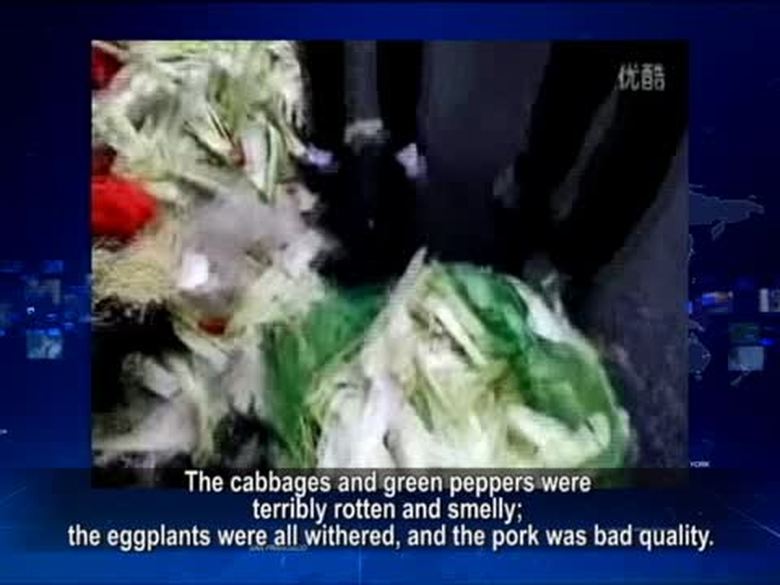
【禁聞】貴州小學吃爛菜 黑心食堂引民憤
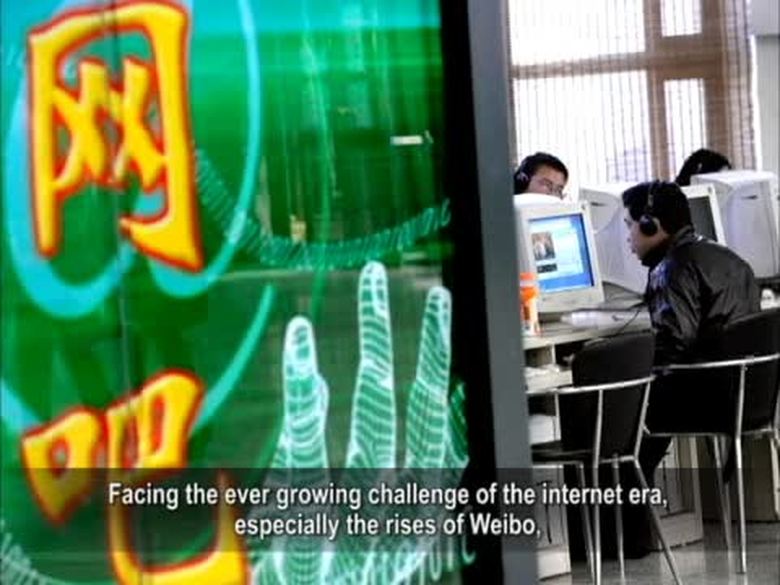
【禁聞】六中全會論「文化」 中共透管制信息
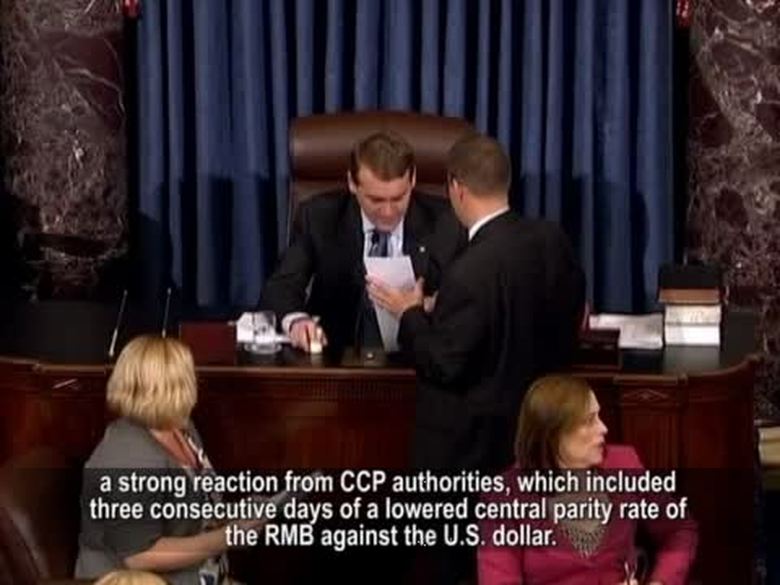
【禁聞】習近平訪美或添變 十八大繼位難料
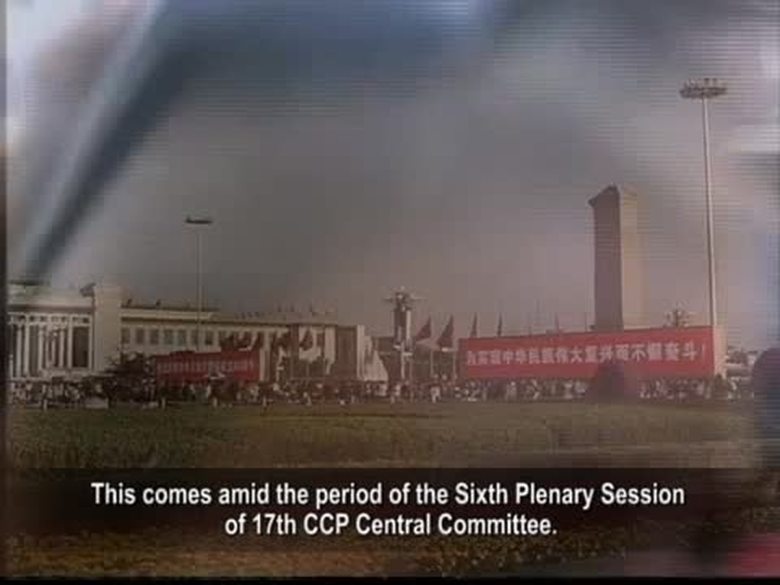
【禁聞】「佔領華爾街」全球瘋 大陸低調進行
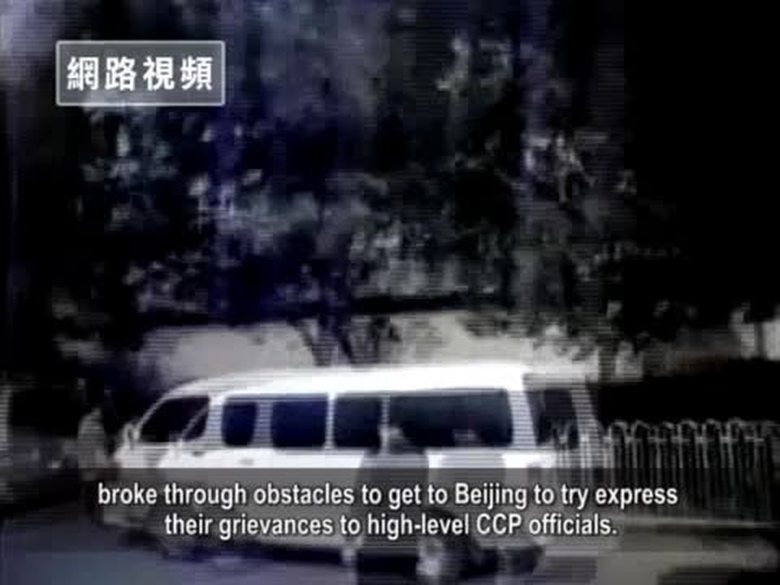
【禁聞】六中全會場內秀文化 場外抓訪民
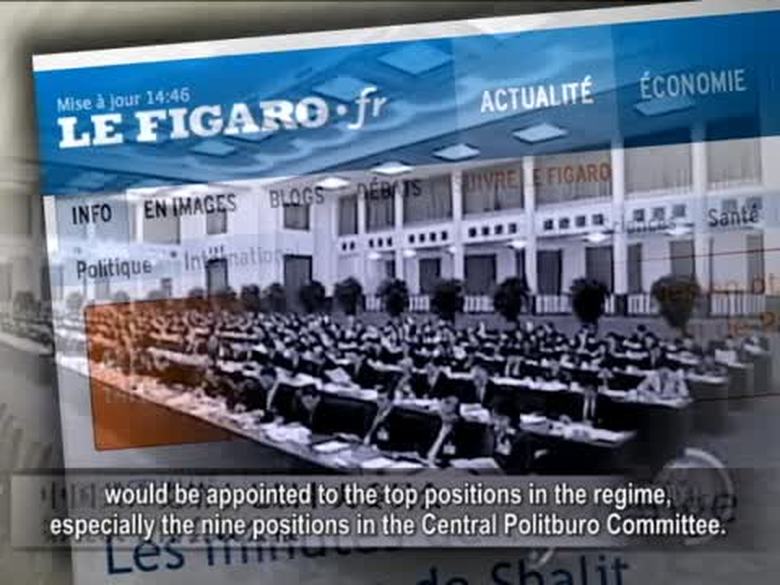
【禁聞】權鬥在即 六中全會牽動十八大人事
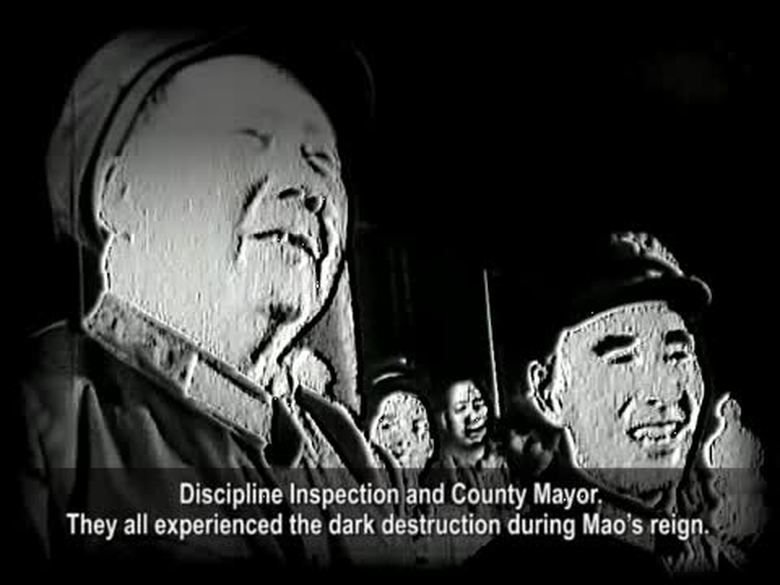
【禁聞】老黨員呼籲撤換毛澤東像
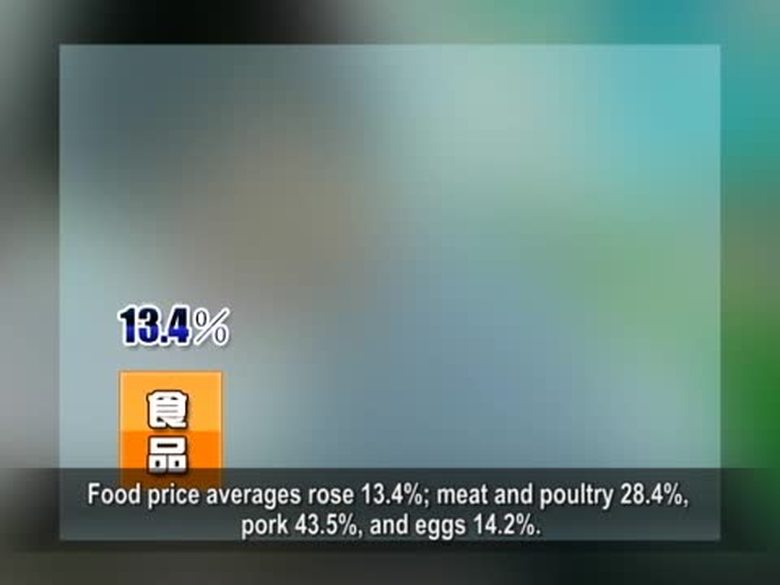
【禁聞】物價飛漲 大陸民眾叫苦:錢不夠用

【禁聞】學者評斥六中全會 籲復興傳統文化
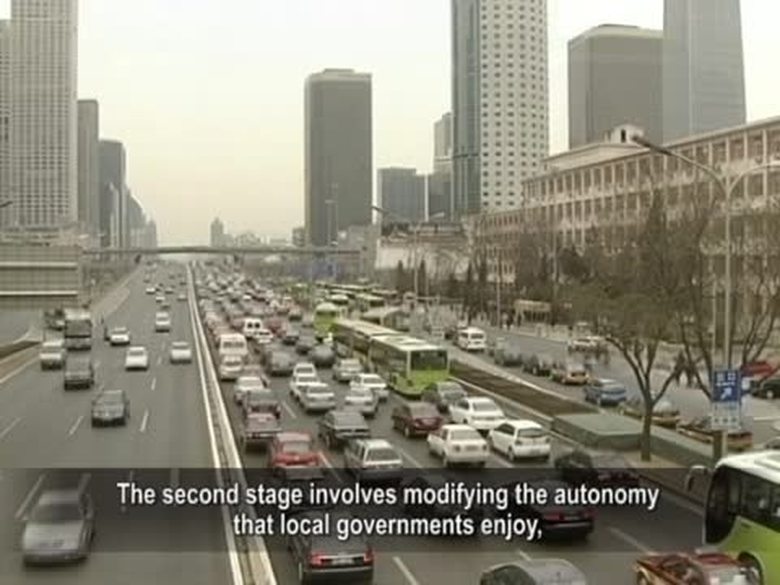
【禁聞】中國公路收費高 為何仍虧損連連?

【禁聞論壇】中國高鐵停不了?
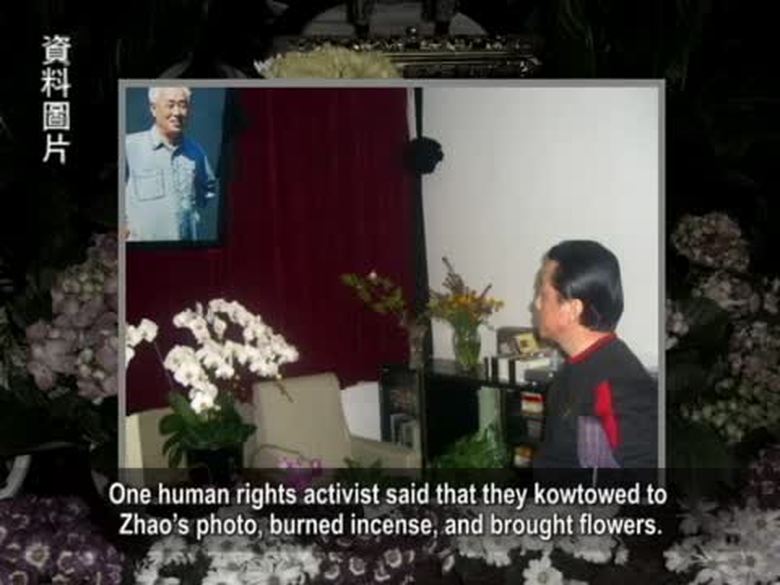
【禁聞】防聚焦趙紫陽冥誕 當局戒備

【禁聞】中國網民發起“不跟你玩”運動
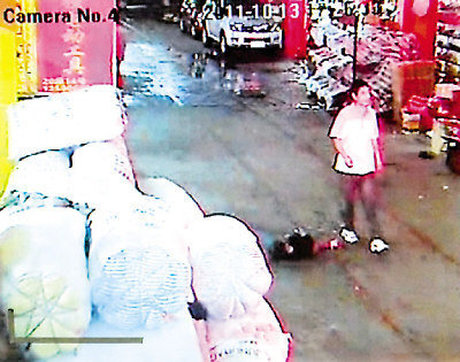
【禁聞】中國道德驚人下滑 見義勇為臨絕跡
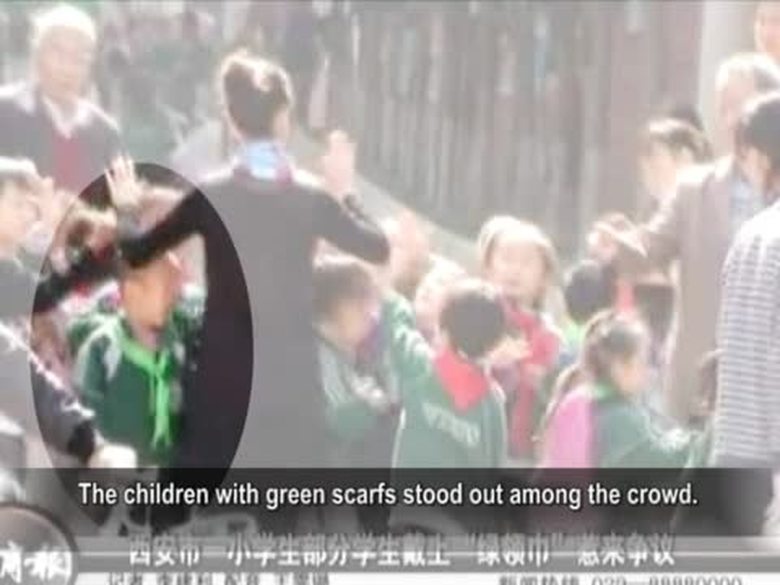
【禁聞】西安小學“差生”被帶綠領巾
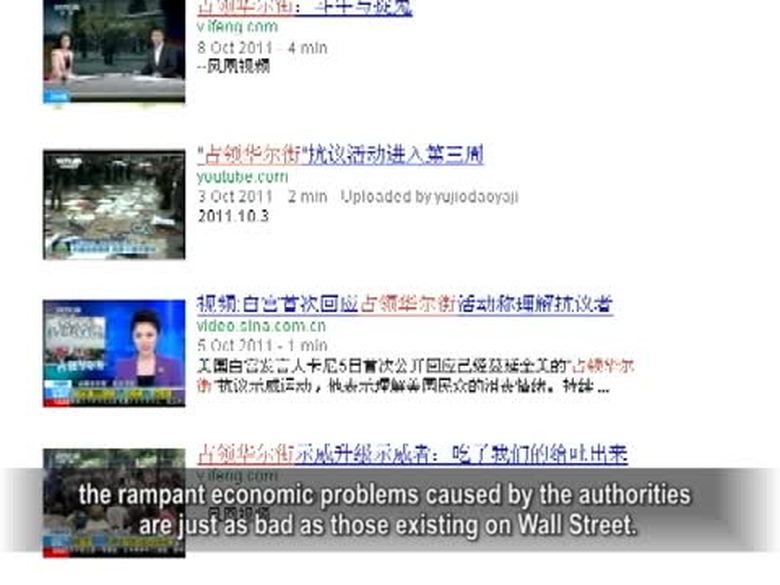
【禁聞】中宣部傳「佔領華爾街」 搬石砸腳








